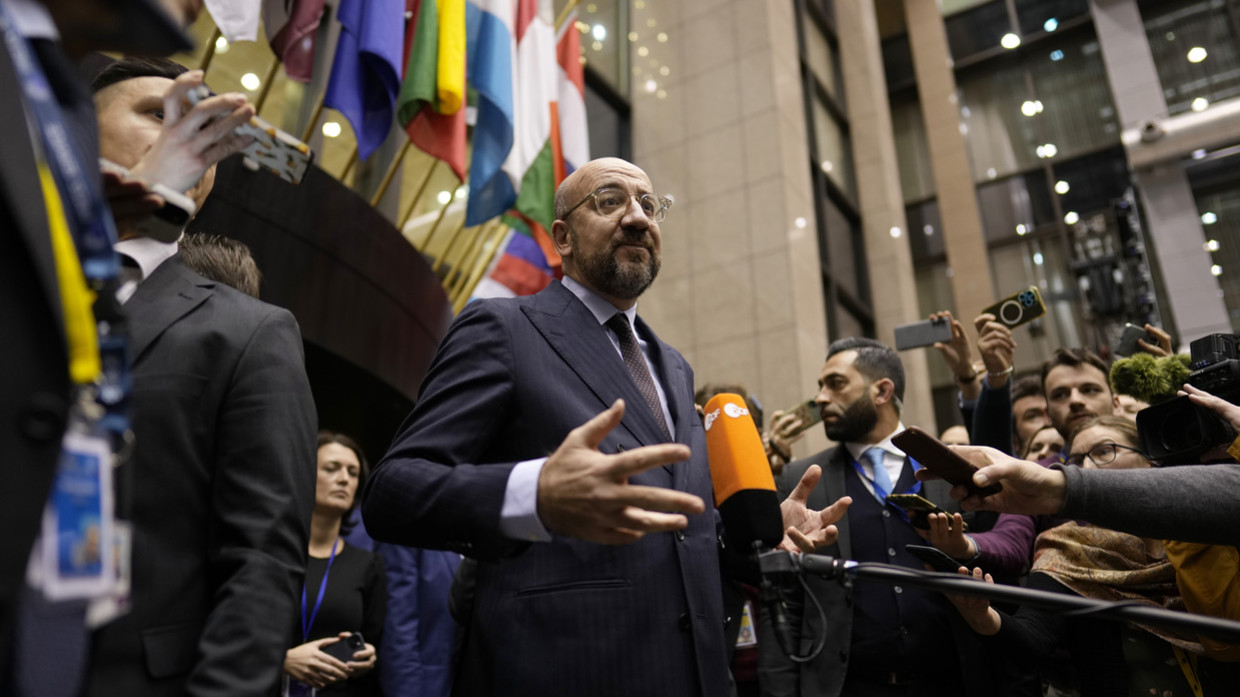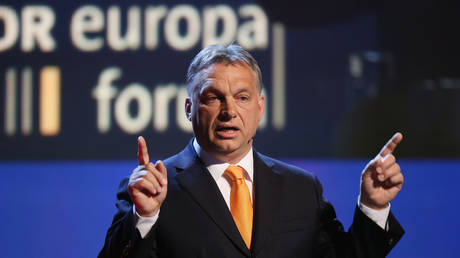EU leaders agreed on Thursday to open accession negotiations with Ukraine and Moldova, after Hungarian Prime Minister Viktor Orban – who had threatened to veto the decision – abstained from voting. Orban and others argue that Kiev must tackle rampant corruption before joining the bloc.
The decision was announced following eight hours of debate at a summit of the European Council in Brussels. Council President Charles Michel hailed the move as “a very powerful political signal,” while European Commission President Ursula von der Leyen described it as “a strategic decision and a day that will remain engraved in the history of our union.”
Ukraine applied for EU membership last February and was granted candidate status that June. However, the decision to open accession talks less than 18 months later was a controversial one, given that some candidate countries in the Balkans have been waiting for the same moment for more than ten years.
Hungarian Prime Minister Viktor Orban was one of the loudest opponents of granting Ukraine accession talks. Orban stated last week that admitting Ukraine, which he called “one of the most corrupt countries in the world,” would be a disaster for the bloc. Earlier this month, Orban’s spokesman, Zoltan Kovacs, warned that Ukraine’s total dependence on foreign aid and involvement in an active conflict should automatically preclude any talk of membership.
However, Orban did not participate in Thursday’s vote, allowing the EU’s remaining 26 members to make a unanimous decision on the talks. Orban opted not to veto the ruling a day after the European Commission unblocked billions of euros in funding for Hungary, which it froze last December, citing Budapest’s failure to comply with the EU Charter of Fundamental Rights on issues including LGBTQ rights, academic freedom, and asylum.
“It is a completely senseless, irrational, and incorrect decision to start negotiations with Ukraine under these circumstances,” Orban said after the vote. “On the other hand, 26 other countries insisted that this decision be made. If the 26 decide to do so, they should go their own way. Hungary does not want to share in this bad decision.”
Slovakia and Austria also opposed fast-tracking Ukraine’s membership, although neither blocked Thursday’s decision. Speaking in Bratislava on Wednesday, Slovak Prime Minister Robert Fico warned that despite the “political decision” of the European Council, “Ukraine is absolutely unprepared to open the negotiations” and will struggle to meet the bloc’s criteria for membership.


